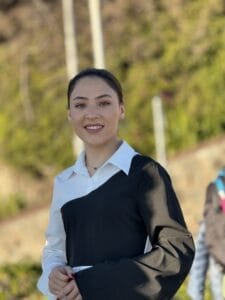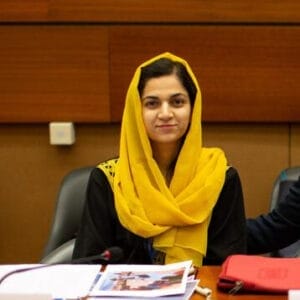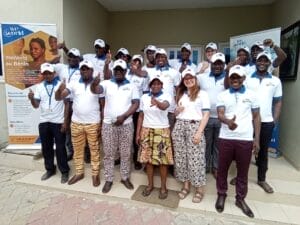
As Gaza marks one year since the escalation of conflict on October 7, 2023, the humanitarian situation continues to worsen by the day. Nearly 1.9 million people, or 90% of the total population, have been displaced at least once, moving from one unsafe place to another. The entire population is in dire need of humanitarian assistance, and the year-long systematic deprivation of access has generated an alarming lack of basic goods and the consequent imminent risk of famine.
WeWorld has been present in Gaza since 1997 and since October 2023, we have adapted our programs, engaging in life-saving interventions to support the population in need, especially those displaced due to the constant bombing. We are planning to continue and expand our efforts, tailoring it to the evolving needs of the population and the changing context.
These last 12 months of life-saving interventions have been possible only thanks to the dedication and tireless commitment of our Gazan colleagues, who have been balancing humanitarian work with displacement and personal loss. They have supported their community while enduring the same war, and they have provided us with invaluable insights on the daily life of women, men and children in Gaza. Amidst the chaos, these stories reveal not only the strength and courage of the Gaza’s population, but also the profound human cost of the ongoing war.
A humanitarian worker, a woman and a mother: Najat’s story
For Najat, a mother of four and a committed member of WeWorld’s humanitarian team, the past year has been a delicate balance between personal sacrifice and dedication to helping others.
Since the war began, WeWorld has reached over 639,698 people across Gaza, ensuring critical access to water, hygiene and sanitation services as well as food. For Najat, however, this has meant stepping out of her comfort zone. "Before, I preferred working in the office where I felt protected," she explains. "But now, I’m exposed to the field, and it’s a very different experience." With the support of her husband, Najat now uses a motorcycle to navigate Gaza’s streets, something uncommon nowadays in the Strip, but essential to reach communities in the midst of the war’s destruction.
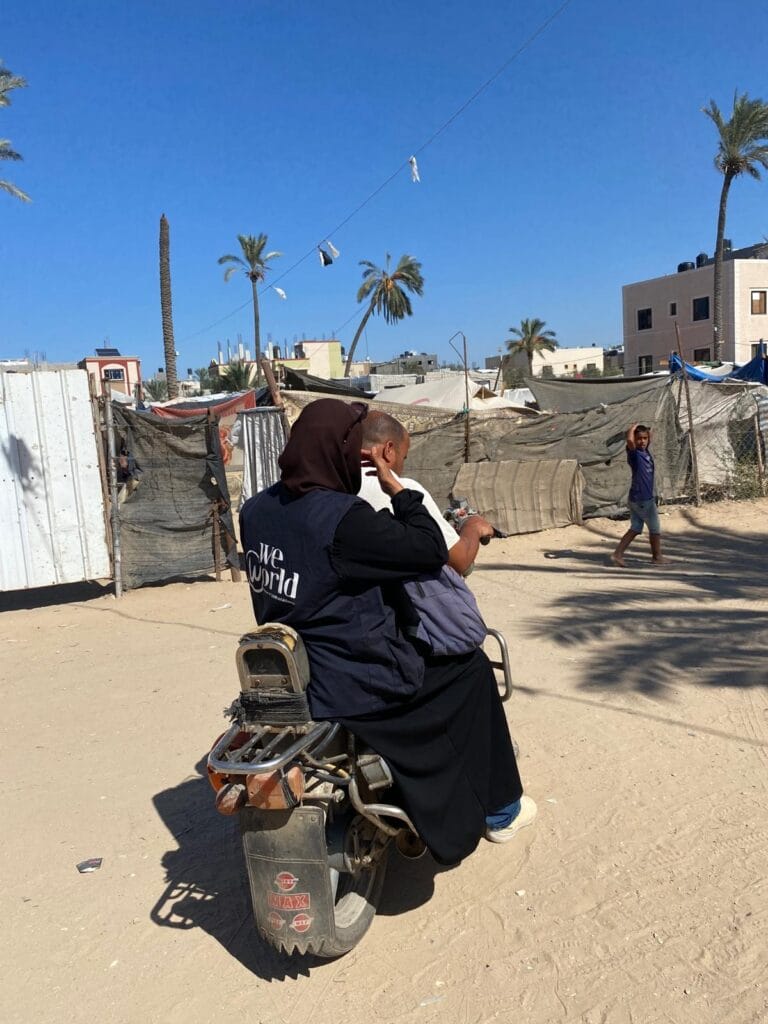
Every day, when she goes to work, Najat leaves her children behind, never certain of what dangers she or them may face. "I always try to reassure them by telling them where I’m going, but it’s hard". "Being displaced, separated from relatives, and balancing work is complicated". The hardship faced by humanitarian workers merges with the emotional toll of constantly living in fear of what the next instant may hold.
The struggles of living in an overcrowded camp: Sami and Tahrir’s story
Like many families, Sami and Tahrir Abu Shanab have been displaced many times. They have five children, two of whom have disabilities, making the challenges of survival go beyond the immediate threat of violence. After being forced to flee their home in the Shuja'iyya area in Gaza City, and after moving twice, they now live in their 3rd relocation, which is the Abu Setta camp in the Middle area, along with 680 other displaced families. Here, access to basic necessities like water, has become a daily struggle.
"We wake up at 4 a.m. to secure a place in line for water", Sami explains, describing how they wait for hours to collect just 30 liters of drinking water. Sanitation conditions are equally dire. "There is only one toilet for multiple families, and it’s always dirty", Tahrir says. "I feel embarrassed to use it because there’s always a long line of around 70 men and women mixed together". Hygiene has become a luxury and the risk of contracting disease is ever-present in the overcrowded camps, where people can shower only once a week. To address these challenges, WeWorld’s team has distributed cleaning and hygiene materials such as jerry cans, soaps, diapers, sanitary pads and hygiene kits, to a total of 46,000 families - around 320,000 people in total -, including the Abu Shanab’s.
Living with disability amidst a war: Hiba’s story
In Gaza, war not only displaces people, but also exacerbates existing vulnerabilities. Hiba Abu Rizq, a 40-year-old woman born without legs, has endured forced displacement multiple times over the past year. Now living near Gaza’s coast, she is the sole provider for her family of ten, most of whom have disabilities.
With only 3 liters of water a day to share between the whole family, they rely on the 9-year-old niece to fetch water from trucks, which stop hundreds of meters away. Without access to proper sanitation, Hiba had to dig a hole in their tent, covering it with a curtain - an unbearable solution in the harsh conditions. "It was a painful reality we couldn’t escape", she recalls.
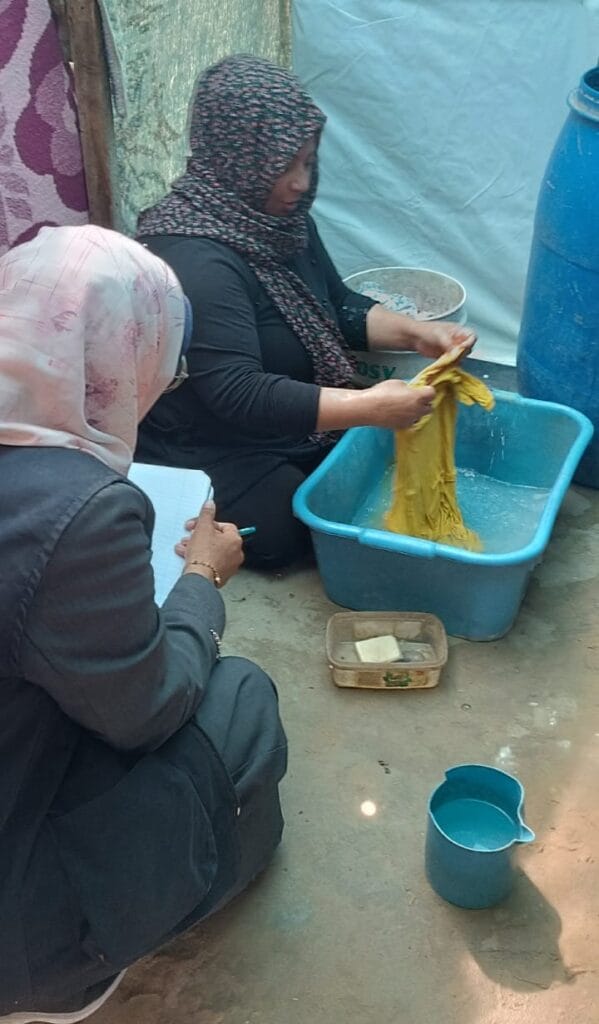
Amidst this difficult reality, there have been moments of hope. Our humanitarian team met Hiba while assessing the camp where her family is displaced, to build sanitation facilities and provide hygiene materials. "I thought it was a dream", she says. To her surprise, within 3 days the team returned and built a family bathroom and delivered cans for the collection of water at a point that was just 20 meters away, making it possible for other family members to collect it. Moreover, they also received hygiene kits tailored to the family’s needs.
The lack of personal resources: Amal’s story
Fleeing multiple times has sadly become part of the daily life for the residents of Gaza, like Amal Abu Qinass and her family of 11, who have been forced to flee now twice from their home, leaving everything behind.
Like most of the population in Gaza, they have no choice but to rely on humanitarian aid: “We have no money to buy food, we lost our income, our jobs”, Amal laments. Our team in Gaza met Amal while delivering one of the 7,000 food parcels distributed to a total of 49,000 families. “I think we are lucky, we are able to receive one or two meals per day now, before we dreamed about having one meal”.
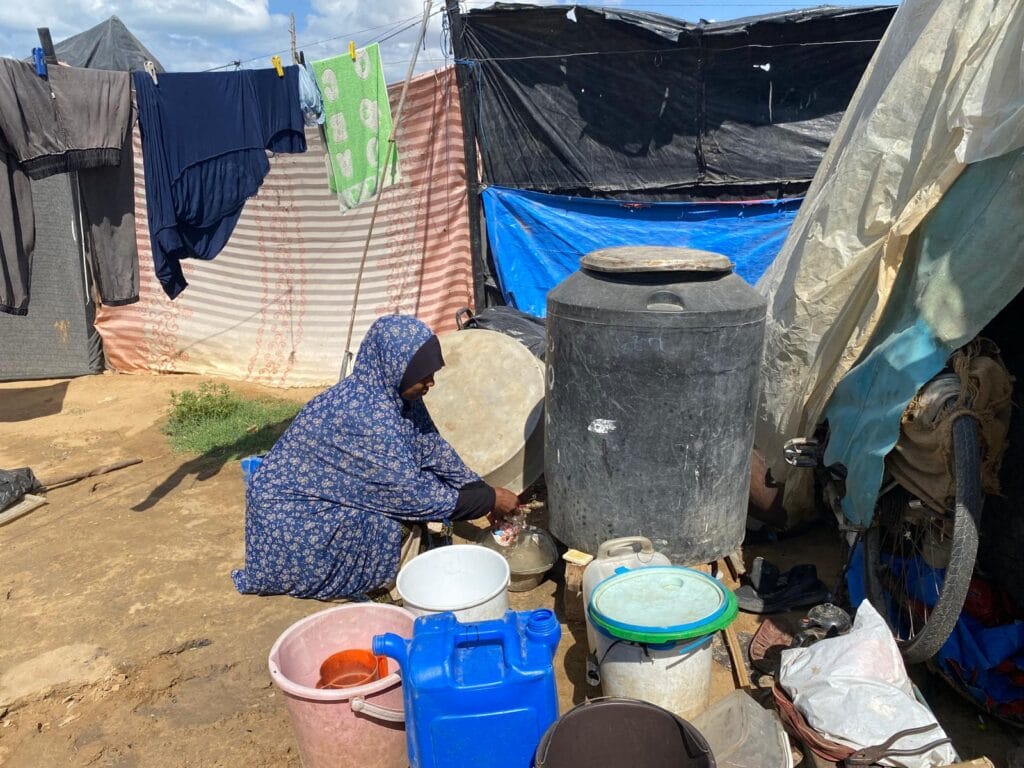
Amal collecting water in the camp where she is displaced together with her family
As the war on Gaza continues, stories like those of the families of Najat, Tahir, Hiba and Amal reveal the profound human cost of conflict. Despite the devastation around them, they, like many others, remain strong, and find ways to survive and to preserve their dignity. As a humanitarian organization working in Gaza, we are on the ground every day providing the crucial aid that is allowed to enter the Strip. However, the needs are immense, and humanitarian aid must enter consistently and in sufficient quantities. Meanwhile, the emotional toll on families is immeasurable. For every story of resilience, there are countless others of loss and suffering. We continue to stand by the Palestinian population and continue to call for a ceasefire in Gaza and all the territories currently under attack.

